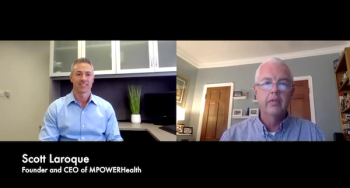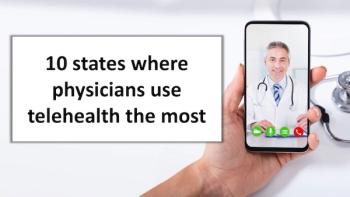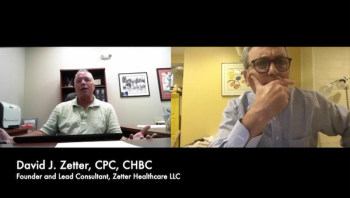
Much progress has been made, but accessing data from another network is still challenging

MGMA 2020: Traditional waiting-rooms may see a decline as virtual options replace them

Much progress has been made, but accessing data from another network is still challenging

New technology plays a key role in getting physicians what they need to treat patients

Balancing rapid access needed by physicians while protecting patient privacy is a difficult task

What you need to know about making telehealth pay off now and in the future.

New practice models give some hope to physicians looking to make it on their own

The J.D. Power 2020 U.S. Telehealth Satisfaction Study takes the temperature of patients’ feelings about the new normal.

The department’s Office of the National Coordinator for Health Information Technology also awarded a cooperation agreement to the American Board of Family Medicine.

Urban areas are leading the way, new research shows

The Sunday morning attack against Universal Health Services may be the largest in U.S. history, according to media reports.

Expert details how health care organizations can improve their cybersecurity.

Patient demand for telemedicine will remain after the COVID-19 pandemic, and as a result more payers will reimburse for it

Successful implementation and integration of these technologies will be critical for practices to realize their true benefit

The aim of the center is to advance digital health technology.

How extracting continuity of care data can close care gaps and improve physician connectivity

An explainer on digital therapeutics and their relevance to ending the pandemic.

Will telemedicine upend the economics of health care?

Succeeding at telemedicine into the future requires selecting the right third-party vendor. Here are some tips.

David Zetter, founder of Zetter HealthCare LLC, says that with careful preparation, practices can profit from telehealth after the COVID-19 pandemic has ended.

The healthcare sector must explore every weapon in its arsenal to continually fight and control COVID-19.

As much as 20 percent of all medical visits in 2020 will be conducted by telehealth.

David Zetter, founder of Zetter HealthCare LLC, says practices need to closely monitor their payers’ requirements for telehealth billing, because they are changing constantly.

Finding the telemedicine platform that is the right fit.

Don’t worry, AI probably won’t replace the doctor any time soon

While we take stock of successes and failures, we are once again reminded that the US healthcare system isn’t built for everyone.
